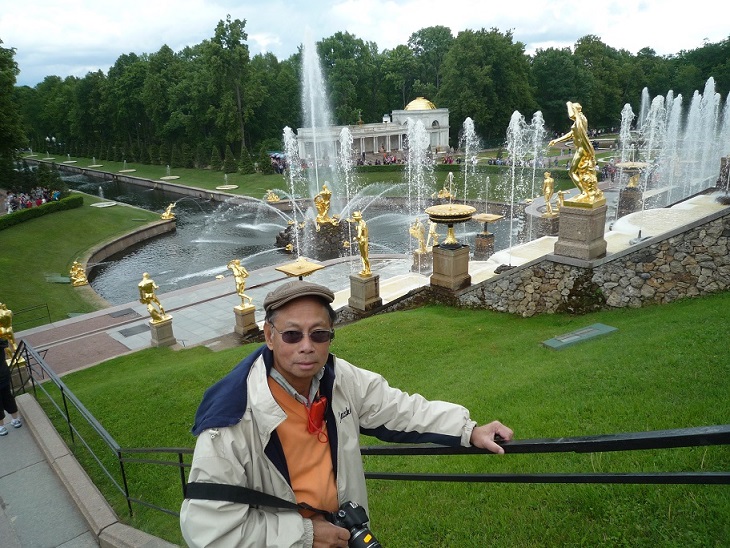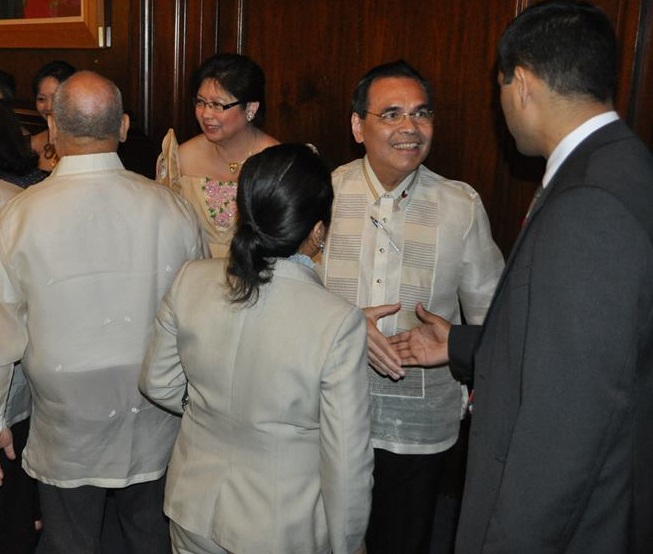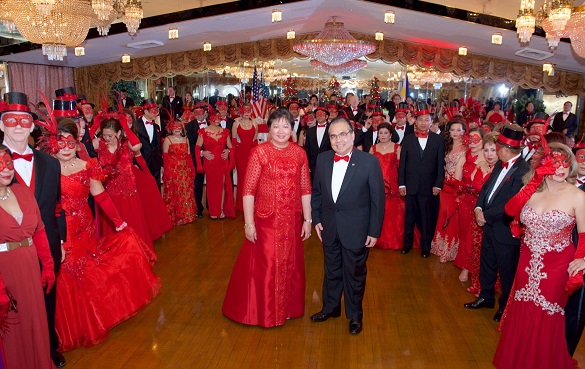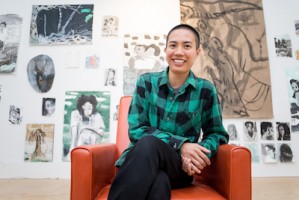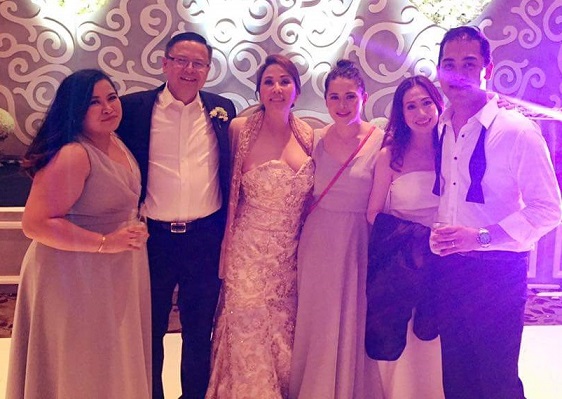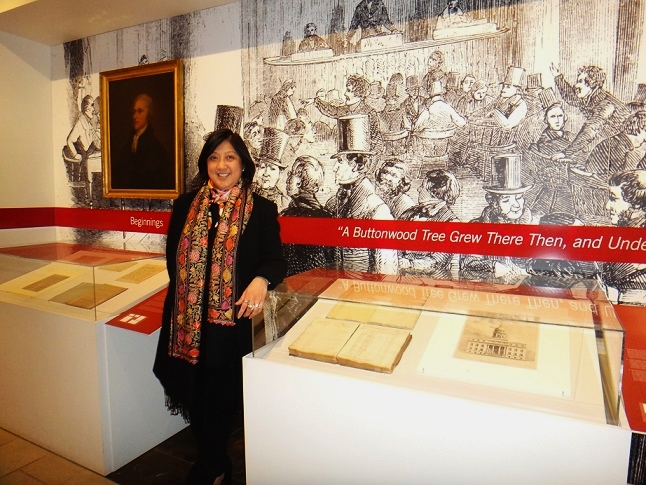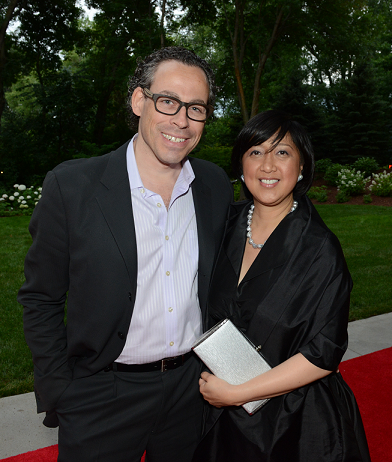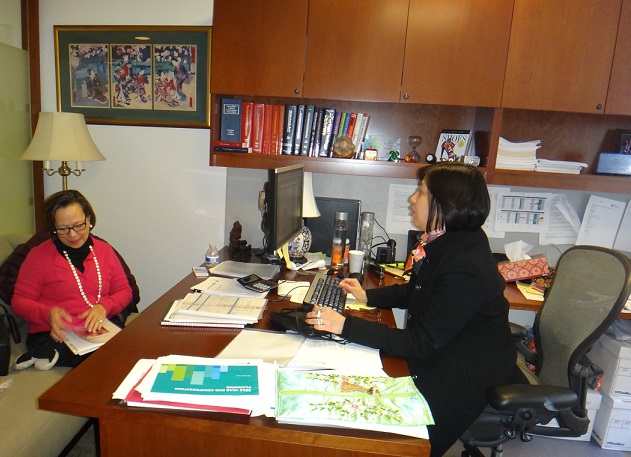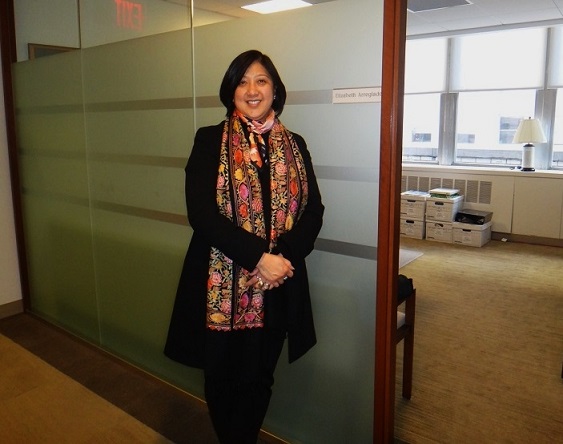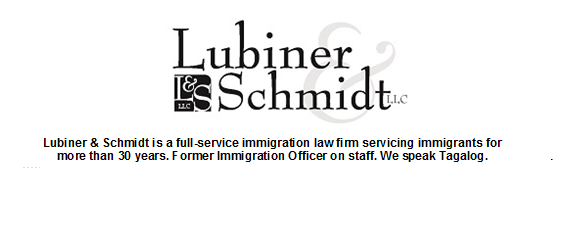Elizabeth Arreglado, highest ranking Filipina, bids goodbye to the NYSE
By Cristina DC Pastor
On the week I came to visit Elizabeth Recto Arreglado at her office in the New York Stock Exchange, Ninez — as she is known to family and close friends – was in the midst of attending to her busy schedule.
I was there to interview the highest ranking Filipina in the world’s biggest exchange. After seven years, she was leaving the NYSE and her position as senior vice president and head of the Global Compensation, Talent Management & HRIS (Human Resources Information System).
“I don’t know yet… The possibilities and opportunities are endless,” she replied followed by hearty laughter, when asked what’s to come in the next chapter of her life. And with that, we had a leisurely lunch at the NYSE dining room (formerly known as the Stock Exchange Luncheon Club) with a common friend, debating between the chicken salad and the lobster sliders and finally deciding we wanted to have both.
Suffice it to say, Ninez has paid her dues.
Her first job was as staff assistant at The Conference Board (TCB), a business research company, coordinating conference and seminar logistics. It was the economist Audrey Freedman, a specialist in labor laws and advocate on job productivity, who hired her.
“I was assistant to the assistant,” she recalled when interviewed The FilAm, “making about $12K a year.”
It was the mid-1980s. She was then a young college graduate from Assumption. She was presented with the option to migrate to the U.S. and she took advantage of this opportunity with open arms.
Ninez’s family is quite prominent not only in Batangas province where the family originates. She is the great grandniece of former Senator Claro M. Recto, a widely acknowledged nationalist. The family also owns a couple of rural banks.
The road to Lehman Brothers
After seven months with TCB, she was promoted to research analyst, a position created specifically for her. “This started me on the research path,” said Ninez.
She quickly became research associate of TCB’s Corporate Governance Program, where she began to study ‘compensation,’ a term that covers employees’ salaries, bonuses, pension plans, stock options and how to use these vehicles to attract, reward and retain talent to ensure the success of an organization.
In 1994, she got “called to join” Lehman Brothers, an investment company founded in 1850s by cotton trading siblings from Bavaria. At the time, Lehman was spinning off American Express and employees’ compensation, particularly the treatment of the equity awards for the senior executives, was an important aspect of the transaction.
At Lehman, she led the unit that set up the compensation infrastructure, a complex system of programs, processes and systems to manage about $7 billion in employees’ equity compensation. “Our equity programs were very complex,” she said.
When the end came in 2008, she was in Philadelphia for a visit. She was actually looking for a Catholic church when a colleague called: Lehman had declared bankruptcy. The company collapsed over heavy losses in the subprime mortgage business. This signaled the beginning of America’s financial crisis, said to be the worst since the Great Depression
“I was devastated,” Ninez shared, recalling her nearly 15 years with Lehman. “I was so wedded to the company I felt like a piece of me was lost.”
More than that, she felt a sense of helplessness that the employees’ compensation in the form of Lehman Brothers equity was also gone in a snap.
“Everyone, from the C-suite down to the rank-and-file, had a portion of our compensation in company stock, and we lost everything,” she said. “There was nothing we could do to protect employees from huge losses.”
Seven years at the NYSE
She was not in post-bankruptcy hibernation for long. Within a few months, she was hired by the New York Stock Exchange, the world’s biggest stock exchange with a market capitalization of more than $16 trillion from traded companies. Ninez joined the exchange in December of 2008 as Managing Director, Global Compensation, introducing a “new compensation philosophy” to the NYSE Board, senior management and staff. She designed a tool that would implement a “pay-for-performance” culture, and also streamlined a global compensation strategy in collaboration with relevant departments and stakeholders.
Seven years later with programs, policies and systems in place, it is time for Ninez to move on. She is leaving by the end of February. On the phone, she was busy attending to projects that required her attention and last- minute transition calls. She was also busy entertaining Filipinos – like her good friend and fellow Assumption alumna Vivian Talambiras Cruz – for a last fling at the trading floor and the ever-popular dining room. Another group of friends was scheduled to visit the following week.
But Vivian’s visit was not about the great food.
Being both from Batangas, Vivian and Ninez were discussing the hearing aid mission the AKOIO Foundation sponsors for the residents of Lipa City, Batangas City, and surrounding towns of Batangas.
The AKOIO Foundation, founded by Ninez and her husband Bill Schiffmiller, hopes to raise awareness, educate and eventually eradicate age-old misconceptions and biases regarding deafness and hearing challenges. Through the missions, they strive to give hard-of-hearing (HoH) and deaf individuals the chance to rise above their physical challenge and to provide the opportunity to succeed in spite of their challenge.
Bill, is an entrepreneur and founder of AKOIO, LLC, a company dedicated to developing products and services to those with disabilities. He is passionate about “accessibility” – to enhance the lives of those with physical and mental challenges and to empower individuals to overcome limitations as a result of physical and/or mental challenges. Bill advises Apple on accessibility development and training for its global retail operations.
Bill’s hearing loss was detected when he was 6, according to Ninez. “He has been wearing hearing aids since.” Due to his personal struggle and experience, Bill has become a staunch advocate of the hard-of-hearing and deaf community.
He met Bill Austin, CEO of Starkey Hearing Technologies, at an industry conference in 2006 and learned about the global hearing mission that the Starkey Hearing Foundation conducts annually in over 35 countries. Bill started having conversations with them about the feasibility of conducting a mission in the Philippines.
In 2013, the couple’s vision became a reality. The AKOIO Foundation collaborates with the Starkey Hearing Foundation and local partners, such as UST’s Audiology Department under the guidance of Dr. Norberto Martinez, the Lamoyian Foundation, community leaders, special education teachers, and other key stakeholders like Vivian and her husband Frank Cruz.
The province of Batangas became a logical beneficiary. During the pilot mission in 2013, over 1,500 patients, both young and old, received free hearing aids over a period of six days. In 2014, the one-day mission in Lipa City served about 700 patients. The program, now on its third year, is garnering a lot more interest with thousands showing up to have their hearing tested and get measured for the right-fitting hearing aids.
Ninez was surprised to see so many Filipinos with hearing impairment: “Ang dami pala!”
She has met with young women who, after finally experiencing improved hearing, wept with hope at being able to finally get a job. That there is no shame anymore at being deaf.
But for many individuals impaired from birth, the hearing aid is just the beginning. Learning to speak is a long road, and the after-care is where Ninez and Vivian reach out to local leaders and key stakeholders for long-term support.
“If the children can hear, then, they can go to school, get an education, and perhaps change their lives!” cried Ninez. “Imagine if this happens to even just one person!”
Could this be Ninez’s next chapter ?
Maybe, maybe not. But this accomplished, viscerally connected woman has come full circle.


